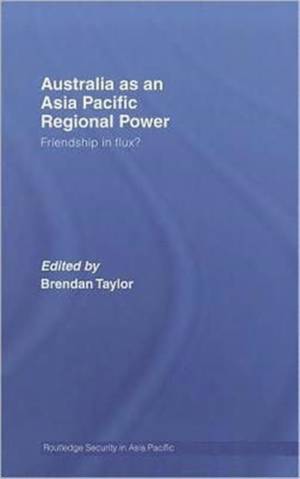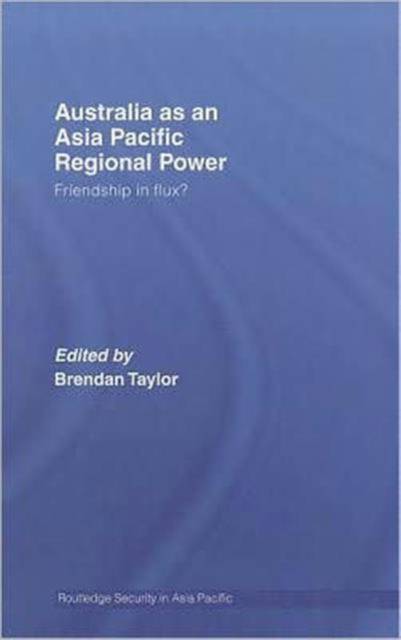
- Afhalen na 1 uur in een winkel met voorraad
- Gratis thuislevering in België vanaf € 30
- Ruim aanbod met 7 miljoen producten
- Afhalen na 1 uur in een winkel met voorraad
- Gratis thuislevering in België vanaf € 30
- Ruim aanbod met 7 miljoen producten
Australia as an Asia-Pacific Regional Power
Friendships in Flux?
Omschrijving
During recent years, in its traditional role as an important Asia-Pacific regional power, Australia has had to cope with a rapidly changing external security environment and a series of new challenges, including a rising China, an increasingly assertive United States, and most notably the Global War against Terror.
This book considers the changing nature of Australia's identity and role in the Asia-Pacific, and the forces behind these developments, with particular attention towards security alignments and alliance relationships. It outlines the contours of Australia's traditional role as a key regional middle power and the patterns of its heavy reliance on security alignments and alliances. Brendan Taylor goes on to consider Australia's relationships with other regional powers including Japan, China, Indonesia and India, uncovering the underlying purposes and expectations associated with these relationships, their evolving character - particularly in the post Cold War era - and likely future directions. He discusses the implications for the region of Australia's new 'Pacific doctrine' of intervention, whether Australia's traditional alliance preferences are compatible with the emergence of a new East Asian security mechanism, and the impact of new, transnational and non-traditional security challenges such as terrorism and failed states.
Specificaties
Betrokkenen
- Uitgeverij:
Inhoud
- Aantal bladzijden:
- 218
- Taal:
- Engels
- Reeks:
- Reeksnummer:
- nr. 5
Eigenschappen
- Productcode (EAN):
- 9780415404211
- Verschijningsdatum:
- 1/10/2007
- Uitvoering:
- Hardcover
- Formaat:
- Genaaid
- Afmetingen:
- 157 mm x 234 mm
- Gewicht:
- 476 g

Alleen bij Standaard Boekhandel
Beoordelingen
We publiceren alleen reviews die voldoen aan de voorwaarden voor reviews. Bekijk onze voorwaarden voor reviews.










